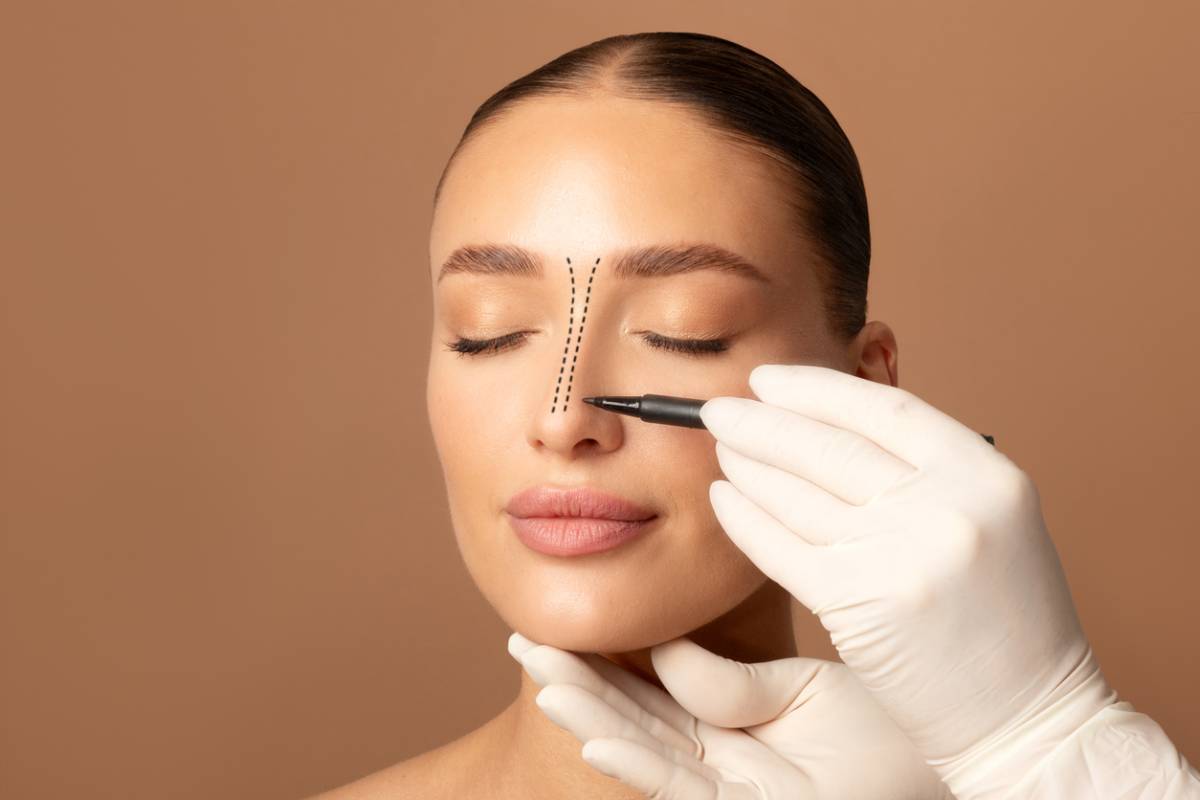How to Prepare for Rhinoplasty
Maybe you have decided that you are finally ready for a “nose job” or rhinoplasty. Whether you are seeking surgery for cosmetic or functional reasons, you may be wondering how to prepare for a rhinoplasty. In this article, we will go over everything you need to know to get ready for your surgery.
1. Choose a Qualified Surgeon
The first step is to find the right surgeon. Before fully deciding on your surgeon, do some research. Check their reviews and ask for before-and-after photos of prior patients. Make sure you feel heard and that the surgeon listens to your goals while giving honest feedback. The appropriate surgeon will do their best to create a plan that is molded specifically to your face.
2. Have a Thorough Consultation
Before you go to meet your chosen surgeon, make sure you have clarified to yourself what you want to accomplish with the surgery and any concerns you may have. Narrow down exactly what you are looking for. Do you want a minor refinement, or do you want a more dramatic change in your nose?
When you do visit your surgeon, they will examine your facial proportion, skin thickness, and nasal structure. They may also use computer imaging to show you possible outcomes so you are clear on what to expect.
3. Follow Pre-Operative Instructions
Once you have scheduled your surgery, you will receive a set of pre-operative instructions, which may include the following:
- Stop certain medications: About 2 weeks before surgery, patients are supposed to stop taking blood thinners such as aspirin, ibuprofen, and some herbal supplements.
- Quit smoking: At least one month before your surgery, you must stop smoking because it can impair your circulation and healing process. This can increase the risk of complications. You should also stay smoke-free during recovery.
- Avoid alcohol: Two days before surgery (48 hours) you must avoid alcohol because it can thin your blood and interfere with anesthesia.
- Plan ahead: Arrange for any time off you might need from work, school, or other obligations. Patients usually need 1-2 weeks for their initial recovery phase.
- Prepare your home: Stock up on soft foods, comfortable clothing that is easy to wear, and many pillows to keep your head elevated after surgery.
Carefully following these instructions will help your surgery and recovery go far smoother!
4. Make Healthy Lifestyle Changes
Sticking to a healthy routine before surgery will stimulate your body’s ability to heal and lower the chance of complications. Here are some changes you may choose to make:
- Eat a balanced diet: Think about lean proteins, fruits, vegetables, and whole grains.
- Stay hydrated: Being hydrated promotes healthy circulation and wound healing.
- Get plenty of sleep: if you get enough rest, your body and immune system will be better prepared for surgery.
It would not hurt to also practice stress-relieving activities, such as meditation, yoga, or journaling, to keep mentally relaxed as surgery day approaches.
5. Arrange for Transportation and Support
Rhinoplasty is typically done under general anesthesia, which means you cannot drive yourself home afterward. Have a trusted family member or friend accompany you to surgery. Also, someone should stay with you for at least the first 24 to 48 hours to help you with your basic needs, look after you for any concerns, as well as provide you with emotional support and company. Setting up a comfortable environment ahead of time will make your first couple of days of recovery much easier.
6. Understand What Recovery Looks Like
One of the most important things you can do before your rhinoplasty is to maintain realistic expectations of the recovery and results. Most patients will experience bruising and discomfort during the first week, during which you will probably be wearing a nose splint and be congested.
You will start seeing some changes in a few weeks. However, it can take several months for all the swelling to pass completely. In fact, it can even take up to a year for the final shape of your nose to refine itself. You need to stay patient during this time and follow your postoperative instructions.
Reach Out
Getting ready for your rhinoplasty has more to it than just showing up on surgery day. It is also about preparing your body, mind, and environment for the surgery and recovery. Taking care of these aspects will only help you have a more successful outcome. As previously stated, prioritize choosing a trustworthy and reputable surgeon. Do not hesitate to reach out to your plastic surgeon with any questions you have along the journey!

Leave a Reply